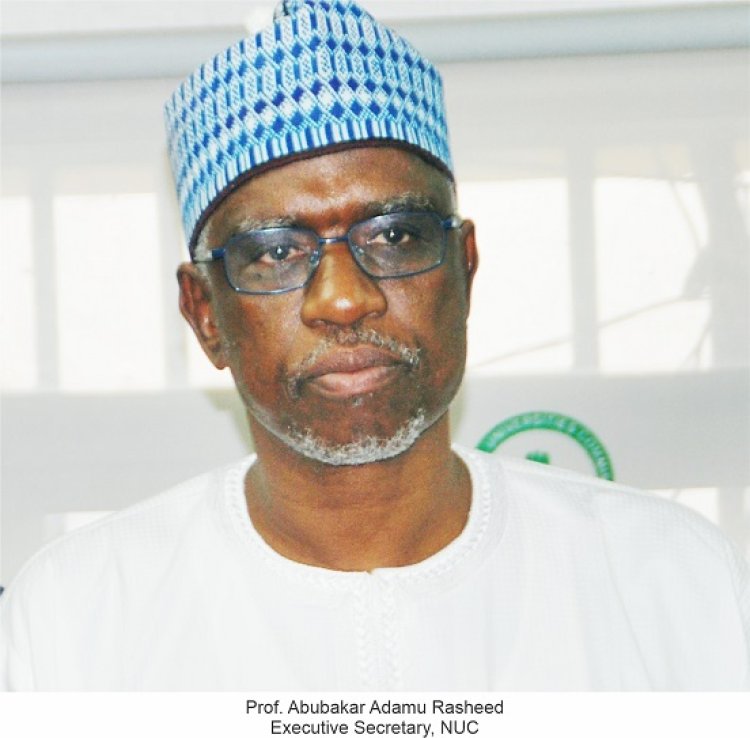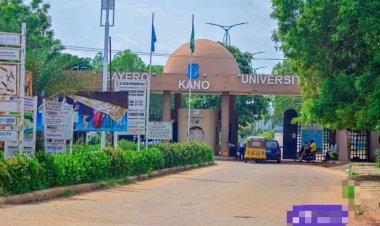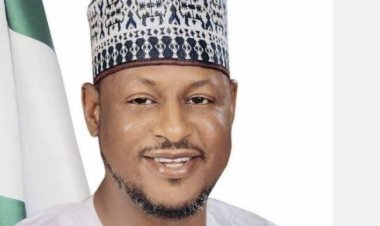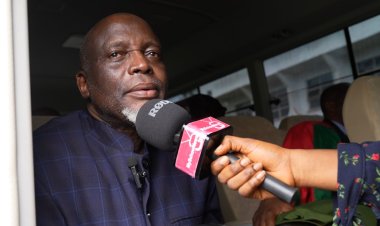265 Varsities insufficient for Nigeria, NUC Says as Universities Decries of Poor Funding
It added that the universities in Nigeria were not enough, compared to the population and number of people seeking admission into tertiary institutions, particularly the university, annually.

265 Varsities insufficient for Nigeria, NUC Says as Universities Decries of Poor Funding but wondering why government should be granting licenses to establish new universities when it was finding it difficult to adequately fund the existing universities.
More tertiary institutions are springing up in different parts of the country under the current administration of President Muhammadu Buhari despite public concerns over poor funding of the existing ones as well inadequate budgetary allocations to the education sector.
Findings by Myschoolnews show that no fewer than thirty new tertiary institutions have been established by the federal government since Buhari’s assumption in 2015.
The Federal Executive Council (FEC), a few days to the end of the President Muhammadu Buhari administration, granted approval to 37 applications for the establishment of private universities in Nigeria.
This was after a few other approvals were granted to some state governments to either establish own universities or upgrade other institutions to universities. Some states like Delta, Kogi and Lagos, among others, now have three or more public universities in their domain.
The decision generated mixed reactions from Nigerians, particularly those in the education sector, who lamented the proliferation of universities in the country, wondering why government should be granting licenses to establish new universities when it was finding it difficult to adequately fund the existing universities.

University lecturers, under the umbrella of the Academic Staff Union of Universities (ASUU), had also complained about the rising number of public universities. In fact, proliferation of universities was part of their grievances that often led to industrial disputes in the university system.
The National Universities Commission (NUC) has also been criticized severally for the development, even when the commission had insisted that its responsibility was to grant operational license to anyone who met the requirements for establishment of a university.
It added that the universities in Nigeria were not enough, compared to the population and number of people seeking admission into tertiary institutions, particularly the university, annually.
Prof. Abubakar Rasheed, immediate-past executive secretary of the NUC, recenlty, rose in defence of NUC’s decision to open its doors and allow investors into the university system by securing licenses to establish universities across the country: “People who criticise the ‘proliferation’ of universities are just being unreasonable and unfair to many young Nigerians, some of whom are ‘desperately’ seeking university education, and some had to resort to foreign institutions. With the population size of Nigeria at over 200 million, the number of enrolment of students is obviously not enough.
“In Nigeria, 70 per cent of the population is below the age of 30. If we compare the statistics with other nations of the world that have less or more population vis-a-vis number of universities and enrolment, we would realize we are not doing well enough.
“The United States, for instance, has over 6,000 universities. India has over 4,000 universities; Argentina with 79 million people has over 200 universities in their country. In Nigeria, with a population of over 200 million, we have 265 universities.
“The recent approval by FEC was for the establishment of 37 new private universities. Many of these new private universities are ‘small’ universities that are focused on a few programmes to meet certain needs. They are, obviously, not going to be like the first generation universities like University of Nigeria, Nsukka (UNN), Obafemi Awolowo University (OAU), Ile-Ife, University of Lagos (UNILAG) and Ahmadu Bello University (ABU), Zaria.
“We are encouraging them to run small, focused universities in a few areas. We are encouraging more specialized universities in different fields like medicine, engineering and technology, and sports, among several others, and I am happy we are achieving that for the benefit of our people.
“Nigerians must know that the 147 private universities in Nigeria do not have the number of enrollment of five first old-generation universities some of which were earlier mentioned. What I mean is that the first five old-generation universities have more students than all the private universities in Nigeria put together.”
Rasheed maintained that university education should not be a privilege that should be enjoyed by the few elite, suggesting that anyone with the opportunity should acquire university education:
“After all, nobody complains that shops, businesses, churches, mosques are springing up across the country. But people are easy to complain about universities being established, which is meant to liberate and empower the people.
“Education is and remains the best means of fighting poverty. We believe that those that are angry with the establishment of more universities are simply showing their ignorance, or are doing so out of mischief. Besides, most of these institutions are from the private sector, meaning that no budgetary allocation will come from the government. It simply means that their services are for those who can afford them.
“Notwithstanding, we would continued to encourage the universities to make space and provision, financial, scholarship and other interventions, for indigent students. We are happy that many of the private ones have schemes designed to enable indigent persons acquire education within their system. We have to fight this negative attitude, and the spirit of criticizing ourselves wrongly.”
A lecturer and member of ASUU, Chris Piwuna, however, disagreed with the NUC on their justification for the proliferation of universities. He insisted that there was no justification for the proliferation of universities without adequate and concrete plans, financially and otherwise, for them.
He described the proliferation of universities as additional financial and administrative burden for the government because of the number of principal staff that would be engaged to run the universities:
“In the first place, it’s better that the capacity of existing universities be expanded in terms of carrying capacity so that more people can be accommodated. If that is done, same principal staff would be used to run the universities. It will save cost. It’s better that way than establishing universities with inadequate funding.
“In most cases, the universities are being used to achieve some political points by politicians. Every governor, senator or President would like to establish a new university in his community without adequate financial and administrative plans.
“Aside from the financial issue, there’s also the problem of manpower. Most of the manpower being used in these new institutions comes from the existing universities. These academic staff often combine the academic responsibilities from their primary institutions and these new institutions.
“I can assure you that many of these newly established institutions won’t function well if the existing universities choose to stop their academic staff from visiting those universities for academic activities.”
On the contrary, the former president of National Association of Nigerian Students (NANS), Danielson Akpan, said it was unfair to criticise the commission (NUC) for opening its doors to investors that desire to establish new universities, including the state governments.
He made reference to rising population of youths in Nigeria who are yearning for university education to enable them acquire knowledge and skills that would give them competitive advantage in the 21st century world that is driven by technology:
“Nigerians are in several universities across the world spending huge resources to acquire education. The painful part is the fact that thousands of them are in low standard universities in small African countries, like Ghana, Gabon, Benin, Malawi and Egypt.
“Our population is on the significant increase, hence the existing universities are being overpopulated. Close to that is the fact that knowledge taste is changing across the world with technology redefining life and living. Things have changed and the knowledge that drives the world economy is not the same compared to several decades ago.
“NUC’s decision, though widely criticized is very much good. This is because it will, among other things, enable us to control what’s happening in the institutions, as against what our students learn and acquire from these foreign institutions many of which don’t consider our peculiarities and uniqueness.
“I have had the opportunity of visiting several countries in Africa, and what you see is Nigerian students in universities that are far lower in standard than what we have in Nigeria. And still, they are being treated poorly. This should stop, and the only way is to provide more opportunities for students to acquire university education.
“NUC has taken a right step in giving licenses to more investors to establish universities to enable Nigerian youths have access to education in a conducive environment, thus soliciting the support of Nigerians to the decision of the commission.”
Akpan also challenged the Federal Government to increase budgetary allocation to the tertiary institutions so they can expand their academic programmes, and also develop their infrastructures to ensure students study in good and friendly atmosphere.





